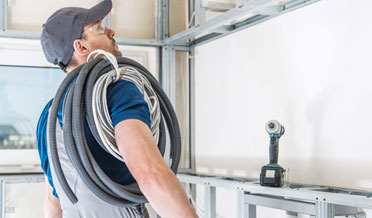5 Top AC Repair Troubleshooting Tips

5 Top AC Repair Troubleshooting Tips for Homeowners
The technology that made air conditioning possible was improved in approximately 1902 but did not become affordable for most homes until the 1960s. Since that time, air conditioning has made summers in the south bearable, accounting for the population growth in the region. Air conditioning provides relief from summer heat and humidity; we have come to expect air conditioning in vehicles, public spaces, and especially in our homes. Not much beats coming home to the refreshingly cool, dry air of an air-conditioned home. Expecting a well-air-conditioned home and being disappointed is not a welcomed experience.
If you come home with air conditioning trouble, it might be helpful to have some AC Repair troubleshooting tips. Being able to fix some AC Repair problems or describe the problem to a professional is extremely valuable. Take a look at these AC Repair tips:
Nothing Works
- Check the circuit breaker. This is an obvious tip, but make sure the power is being supplied to the air conditioner. Check other appliances to make sure the power grid is active.
- Check the thermostat. Another obvious tip, but things happen. Make sure the thermostat is in the cool position and the setting is lower than room temperature. Replace the batteries to make sure the switch/thermostat is working.
- Call an AC Repair professional. If power is available and the switch is on, a circuit is broken somewhere. Your air conditioner is incredibly complex, with switches, sensors, capacitors, and connections.
Cool Air/Limited Airflow.
If the air is plenty cool, but there is not enough of it, here are a few things to check:
- Check the air filter first. With every cooling cycle, the air filter collects dust, dander, and pollen. If the filter is not changed frequently, it will clog, reducing the airflow passing through it. The air filter should be changed at least every three months.
- Check the air vents. Everyday events of life often ignore your HVAC system, so occasionally furniture or drapes cover supply vents or cold air returns. Covered vents might be the source of this problem.
- If nothing is restricting the airflow, call an AC Repair professional.
Plenty of Air/Warm Air
Check the air filter first. The air conditioner uses the movement of air for cooling and moisture removal, so be sure to change the air filter regularly.
- Check the refrigerant gas. If the air supplied to the home is warmer than required, the system has inadequate coolant. In general, this is not a DIY task, so call a professional HVAC tech.
Frost or Ice on Components
- Locate the frost. A buildup of ice might be found on the outdoor condenser unit, the indoor evaporator unit, or along the tubing that connects the two.
- The cause of the frost is the same and will require an HVAC professional.
- Do not attempt to chip the ice away. This might result in damaging the closed system of refrigerant gas, allowing it to leak out.
Sounds
- Identify the sound. Is it a squeak? A rattle? A bump? Clicking sounds?
- Locate the sound. Is it outdoors? Indoors? Knowing where the sound is coming from will be helpful when you talk with an HVAC technician.
Have Questions about AC Repair Troubleshooting?
Let us help with your AC Repair and maintenance. Call Doctor Cool & Professor Heat today at 281-338-8751 or email Doctor Cool and let our professional Residential HVAC Replacement technicians assist with all of your HVAC System Spring Cleaning questions.
